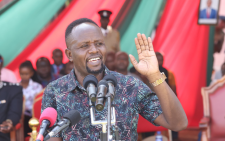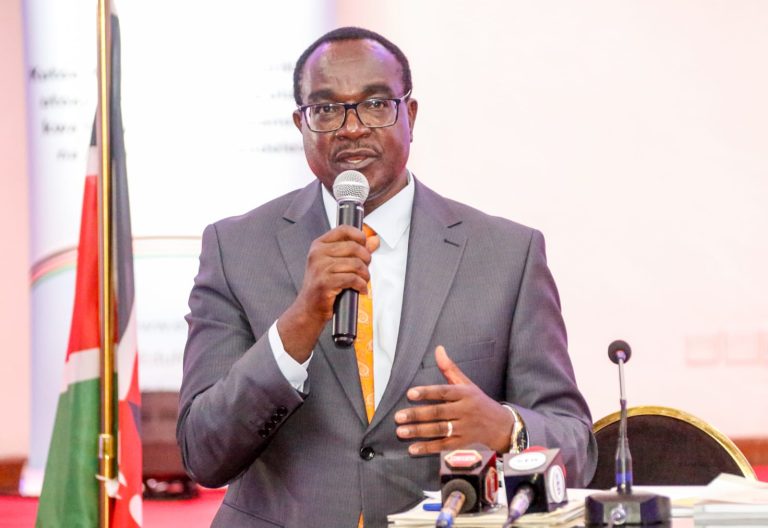Africa delivers powerful agenda at climate forum

When the leaders of African nations set out to attend the United Nations Climate Conference (COP28) in Dubai, UAE, they had a strong clear agenda.
The African leaders’ agenda, spelled out at the inaugural Africa Climate Summit held in Nairobi, Kenya in September, called for urgent action by developed countries to reduce carbon emissions.
The Nairobi Declaration also proposed a new financing mechanism to restructure Africa’s crippling debt and unlock climate funding, stressing the importance of decarbonising the global economy for equality and shared property.
“Multilateral finance reform is necessary but not sufficient to provide the scale of financing the world needs to achieve 45 per cent emission reduction required to meet the Paris 2030 agreements, without which keeping global warming to 1.5°C will be in serious jeopardy,” the Africa Climate Summit Declared.
A collective “African voice” emerged from the forum that brought together global leaders, intergovernmental organizations, regional economic communities, UN agencies, the private sector, civil society organisations, indigenous people, farmer organisations, children, youth, women and academia.
With a clear mandate from the Africa Climate Summit, Afro-centric groups have already put forward their case at the World Climate Summit in Dubai.
President William Ruto, host in Nairobi and chair of the committee of African leaders on climate change, delivered a keynote address, challenging the world to install clear and actionable roadmaps to turn Africa into a “green powerhouse”.
He also attended a panel discussion on transforming climate finance to ease the high debt service pressure on developing countries.
In the panel were IMF Managing Director Kristalina Georgieva, the President of France Emmanuel Macron, UK Prime Minister Rishi Sunak, Ghana President Nana Akufo-Addo and Barbados Prime Minister Mia Mottley.
Has Africa made any gains in its COP28 agenda and the ambition to fulfill the green movement’s crucial role in protecting the environment?
Have they managed to bring the African agenda to the high table to discuss Africa’s climate challenges and formulate sustainable solutions within the context of the main global agenda at the climate talks?
Pivotal issues include restricting the global temperature rise to 1.5°C, supporting vulnerable communities impacted by climate change, and achieving net-zero emissions by 2050. COP28 is also expected to stress the importance of collective action to stop climate change and the critical role of finance in the low-carbon transition.
Record temperatures
Amid the ever-deepening climate crisis, the conference aims at fast-tracking the transition to a clean energy future and back climate commitments with action.
Data illuminating global climate goals, pathways for transition finance, biodiversity, the phase-out of coal-fired power, the greening of private assets, the evolution of carbon markets, and the emergence of resilience alongside carbon cutting as a theme of investment are being discussed.
As fossil fuels and finance dominate the COP28 agenda, Africa’s priorities are clear. A unified voice is crucial in unlocking the climate finance stalemate to build a resilient future for the continent.
The impact of the climate crisis on life on the planet in 2023 has been unprecedented. Temperature records have been soaring as populations, especially in Africa, suffer from heatwaves and crushing droughts.
With 2023 likely to be the hottest year in recorded history, United Nations Secretary-General Antonio Guterres has described it as the “era of global boiling”.
The first-ever Global Stocktake is like taking an inventory to chart a better course forward to accelerate climate action and is set to conclude at COP28.
It is intended to inform the next round of country action plans – Nationally Determined Contributions (NDCs) – to be put forward by 2025 under the Paris Agreement. The world is not on track to limit global warming to 1.5°C.
Africa is not historically responsible for global warming, but bears the brunt of its effect, impacting lives, livelihoods, and economies. Yet Africa possesses the potential and ambition to be a vital component of the global solution to climate change.
Across Africa, the impacts of climate change are glaring. At least 10,000 people died in Libya when torrential rains caused two dams to collapse. Algeria and Tunisia endured some of the highest temperatures, approaching 50°C.
The Horn of Africa suffered four seasons of drought after failed rains.
However, Africa holds many tools the world needs to accelerate the energy transition, with large swathes of the continent enjoying excellent conditions for renewable energy, particularly solar power.
Europe is looking to the Sahara Desert’s solar resources for its energy needs. Africa also has immense potential for its renewable resources to power a green industrial revolution in the continent.
Africa’s message at COP28 emanating from the Nairobi Declaration at the Africa Climate Summit is loud and clear: The global community must act with urgency in reducing emissions, honour past promises, and support the continent in addressing climate change.
African countries face disproportionate burdens and risks from climate change-related, unpredictable weather events and patterns. The impacts include droughts, devastating floods, wild and forest fires, which cause massive humanitarian crises with detrimental impact on economies, health, education, peace and security among other risks.
Africa has three priorities in the protracted negotiations at COP28 – delivering on climate finance, scaling up carbon markets and phasing out fossil fuels.
Leaders must convince rich countries to implement previously pledges to provide finance to help developing countries adapt to the worst impacts of climate change.
The main pledge dates to COP15 in Copenhagen in 2009 for $100 billion a year in climate finance for developing economies, yet the pledge falls short of what is needed. Climate experts note emerging economies other than China will need to spend $2.4 trillion a year on addressing climate change by 2030.
However, some traction appears to have been made at COP28 on the Loss and Damage Fund agreed at COP27 in Egypt last year
America’s pledge
On Day One at the conference, nearly 200 nations agreed to operationalise the Fund to help vulnerable countries deal with more extreme climate events. So far $450 million have been made in pledges from at least 10 nations.
Guterres termed the agreement an essential tool for delivering climate justice. He urged world leaders to make generous contributions.
On Saturday, US Vice President Kamala Harris announced in Dubai that the US is pledging $3 billion to replenish the Green Climate Fund – the world’s largest climate fund created to help developing countries handle climate change.
Harris criticised “leaders around the world who seek to slow or stop our progress, deny climate science, delay climate action and spread misinformation.”
The Fund also launched the Re-GAIN partnership with AGRA, a groundbreaking initiative to support Africa realize its promise as a food production powerhouse.
Africa’s other priority at COP28 is to secure agreement on scaling up carbon markets. With some of the world’s greatest potential for removing carbon through its forests, mangroves savannahs and other natural assets, carbon markets provide the continent with a way to monetize these services to the planet.
Priority number three is agreeing on a common position on the phasing out of fossil fuels amid fierce debates on setting a timetable to end the burning of coal, oil and gas.
At COP26 in Glasgow delegates agreed on a linguistic compromise on fossil fuels in which the phrase “phasing out” was replaced with language on “phasing down”. The divisions at the global level are mirrored in Africa at COP28.







